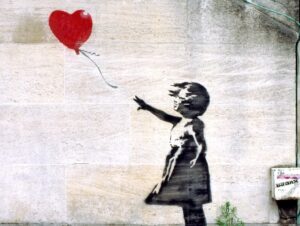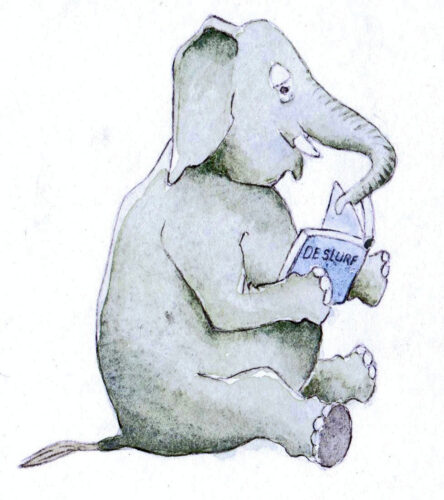A blog by Joyce Cordus
For the past few weeks, I have been a bit confused. For some time now, I have been fascinated by the theme of forgiveness and forgiving. At the same time, I am trying my best to deal with the hatred in the world. Both on a small scale in my own environment and on a global scale. For example, by speaking out against the horrors that Israel is committing in Gaza (and now also in Lebanon). I myself try not to hate. Because with so much hate around you, it’s easy to get caught up in it. At least that’s how it feels to me. So for a while now, I have been wondering if my knowledge and experience of forgiveness and forgiving is of any use to me in this time of war threats.
Coincidence or not, a few days ago a fellow meditation facilitator sent me a video clip. It began with a Shakespeare quote from his play The Merchant of Venice, that caught my attention.
“The quality of mercy is not strained;
It droppeth as the gentle rain from heaven
Upon the place beneath. It is twice blest;
It blesseth him that gives and him that takes.”
According to the online version of the Merriam-Webster dictionary, ‘mercy’ can be seen as ‘compassion: sympathetic awareness of the need of others, coupled with a desire to alleviate it’. And this is the very quality so important in forgiving and forgiving. Naturally, I was incredibly curious to see what else the meditation facilitator would say about forgiveness in the video clip. I watched and listened to the entire video. How special it was to discover how, what she had to say helped me unravel my confusion.
She referred to one of the speeches of Krishnamurti, an Indian philosopher, writer and speaker who lived in the last century, in which he responded, ‘I am full of hate. Will you please teach me to love?’ Krishnamurti replied that no one can teach you how to love. What you can do is ‘observe hate and gently put it aside’. In this way, you can make sure that hate doesn’t take root in your mind.
 In this day and age, I find that not only beautiful and hopeful advice but also an antidote to hate. It also helps me to connect the theme of forgiveness with trying not to get caught up in hate when I look at all the terrible things happening in the world right now. I have to admit that it is quite a tough exercise, every time hate rears its head, to see it, notice it and let it pass. It’s much easier to let it drag you down.
In this day and age, I find that not only beautiful and hopeful advice but also an antidote to hate. It also helps me to connect the theme of forgiveness with trying not to get caught up in hate when I look at all the terrible things happening in the world right now. I have to admit that it is quite a tough exercise, every time hate rears its head, to see it, notice it and let it pass. It’s much easier to let it drag you down.
For me, Krishnamurti’s statement is an encouragement to practice mindfulness in order to notice hate at all. If you manage to do that, you will know love, Krishnamurti argues. But the Shakespeare quote shows me how important compassion is. And that’s in line with two important elements on the path of forgiveness. Desmond and Mpho Tutu write in their book, The Book of Forgiveness, that it is easier to choose the path of retribution, to harbor bitterness and seek revenge, than to take the path of forgiveness. They write: ‘The path to forgiveness is not easy. Along the way, we must wade through the mud banks of hatred and anger and find our way through grief and loss to reach the acceptance that characterizes forgiveness.’
So, for me, walking the path of forgiveness is not only a way to get to forgiveness, but also an antidote to hatred. Something that I think the world is desperately needing right now.
– Joyce Cordus, october 2024

